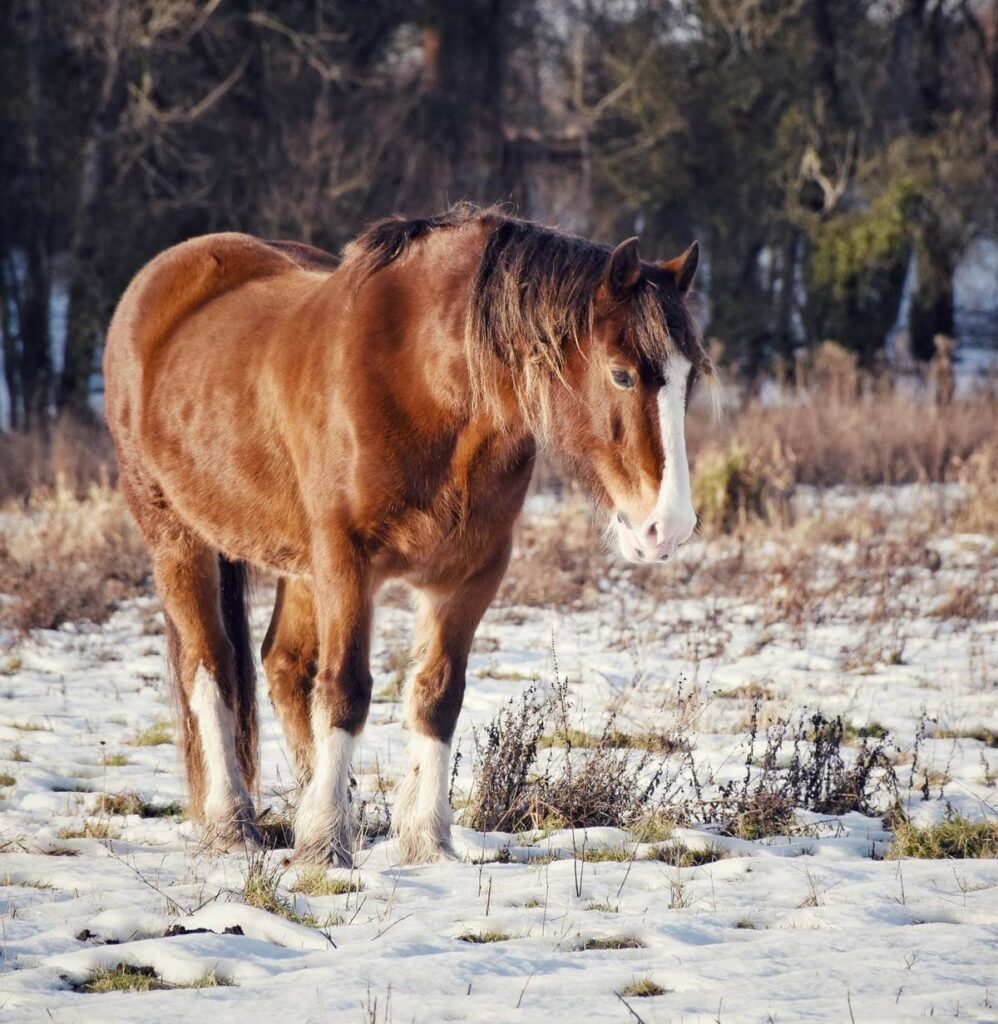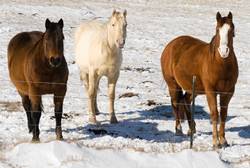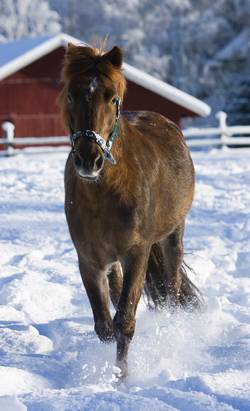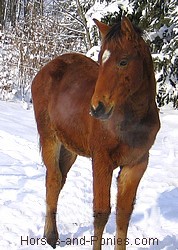
How to Care for Your Horses and Ponies in Winter
So often well intentioned horse owners opt to stable and/or blanket their horses during the winter months usually because they are afraid of their horses being cold and miserable. Just because we are “cave dwellers” and get cold very easily doesn’t mean your horse does. Most horses prefer outdoor open spaces, room to move, lots of forage and the company, companionship, and the freedom to participate in a herd hierarchy. This is because horses have evolved to live naturally and despite being domesticated for so long they are still well equipped to deal with harsh winter weather. But please don’t throw your beloved equine into sub-zero temperatures quite yet! Read on to be sure your horse is fully prepared and has everything he needs to keep happy and warm outside in the winter.
Stabling:
Did you know that by keeping your horse stabled you may actually be making him colder? Everyone knows that if you are cold, moving around and increasing circulation will warm you up. This is especially true for horses. Even a box stall is like keeping a dog in a small kennel. They cannot move around enough to maintain good circulation, digestion and warmth. Aside from anything else fresh air and the freedom to move is much healthier than keeping a horse in the fanciest of stables.
A run-in, or open shelter, enables your horses to move out of the wind and rain if they so desire, while still providing them with the freedom to roam.
Natural Winter Coats and Blanketing:
A horses’ best defence against cold temperatures and dampness is his own well developed winter coat. A horse with a winter coat leaves air pockets for insulation and warmth when it is cold (when you shiver, your own hair is making air pockets to warm you up!). A good winter coat grows longer, thicker and develops a slightly oily texture for protection against rain and dampness. However, once the coat becomes soaked the all important air pockets lose their ability to trap air and the horse loses some of its super thermal natural coat. (See below for more information on this and how to help your horse cope naturally).
Blankets apply enough pressure to flatten the coat and remove any natural air insulation. And if you put on a blanket that is too light for the weather it is the same effect as if you were to wear a fall coat in the middle of winter.
Forage, Digestion and Water:

It is crucial for horses that are outside in the winter to have plenty of forage. Good quality free choice hay, or restricted hay feeders are the best options. Horses are trickle feeders and constantly need something in their bellies. Digestion releases heat and keeps the horse warm. In really cold temperatures horses will eat more forage naturally to keep themselves warm. Of course, along with forage, water is very important in the winter.
Horses tend to drink less if the water is really cold. Horses and ponies need access to fresh water at all times…watering twice a day just doesn’t cut it. Also, leaving a horse to eat snow as water intake is not wise either. Make sure salt is available, and have a heated water trough if you can. Feeding soaked hay cubes is also a good idea. If a horse isn’t getting enough water digestion issues often occur . This is why more colic cases occur in the winter months.
>> by Adrianne Lake

